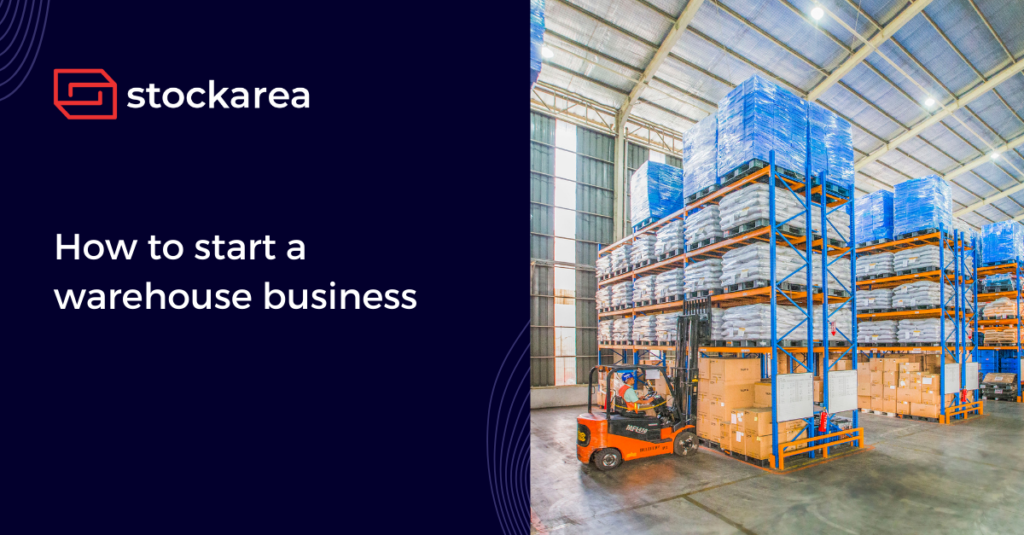A warehousing business offers storage and fulfilment services to the enterprises that need to store products in bulk before for distribution or sale to other sites or to end consumers individually. Many e-commerce enterprises, for instance, purchase things in bulk from their suppliers, who then transport them to their warehouse for storage. When an end client puts an order on the ecommerce website, the business or its third-party fulfilment provider selects packs and ships the product straight to the customer from the warehouse. Every company that sells goods and commodities relies heavily on adequate warehousing facilities.
1. Create Your Business Plan
When deciding to start a warehouse business, the initial step is to determine the services you will provide. There is more to a warehouse business than shelves and equipment; you might specialize in particular fields. Depending on the needs of your target market, you can provide storage services, shipping and distribution services, or a mix of the two. You will need a business strategy for your warehouse only after you have identified your market niche and analyzed your competition.
2. Know Your Competitors
Analyze what your competitors are doing, what appears to work, and what does not. You will need to distinguish yourself from the competition and offer something distinctive; your research on the competition will also help you generate ideas for this unique offering. Observing what similar businesses in other regions are doing is one method helps in generating new ideas. Contact some of them and ask for guidance on how to distinguish yourself. If your firm does not pose a danger to theirs, they will be more inclined to assist you; nonetheless, you may need to call many of them before you discover one who is prepared to advise you.
3. Get Investment
The most popular and preferable funding option is Bank loans; however, obtaining one demands a strong business plan and credit background. Investment capital is also an upcoming investment prospect; in exchange for money, you can provide prospective investors with an ownership stake, keeping in mind that you would be giving up some control over your company. Lastly, personal investment is also a viable option, where you can self-fund your business by selling real estate or other assets and assisting family and friends to self-finance your firm.
4. Obtain Licenses
To lawfully run a warehouse, a business needs a licence. The state in which you plan to operate your warehousing company will determine what licences are necessary. It is suggested that you speak with a business lawyer who can assist you in obtaining your licence. This is not a choice to be taken lightly because failing to comply with legal requirements might result in severe penalties. It could be a good idea to employ an expert to help you check all the legal boxes if you feel overwhelmed by this phase or are unsure of where to start.
5. Build Your Team
Choosing the right team is a vital part of setting up a warehousing business because employees play the most crucial role in warehouse operations. The workforce in charge of a warehouse’s logistics are, in a sense, its backbone because they are responsible for tracking and sending merchandise, and therefore, it is crucial to recruit educated individuals with a proven record.
6. Find Your Customers
The warehouse sector is predicated on strong customer ties, but at the beginning, it is necessary to build these partnerships. Attending industry-specific trade events and conferences will allow you to network and meet possible clients. In addition to having a website, social media is an important tool to engage with customers. Joining various online warehouse associations, which provides a variety of resources to persons in the warehouse industry, is another strategy to get clients.
7. Offering Warehouse Services
This is a complicated procedure since it involves extensive collaboration across multiple organizations, from acquiring a corporate contract to manage their logistical needs to collecting up the cargo from their location – end-to-end transportation followed by city-level distribution.
The key to corporate success is continuously tracking and tracing cargo and vehicle movement and ensuring that goods reach their destination undamaged and on time. This is a lengthy procedure that will demand the individual’s consistent participation.
8. Expand Your Network
Expanding your network beyond industry events and conferences through social media marketing can go a long way for your warehouse business. The primary focus of a warehousing business should be boosting warehouse profitability, lowering operational expenses, and enhancing performance.
Expanding delivery choices is another approach to improve a warehouse’s profitability. Single-channel logistics is becoming more uncommon as a result of current developments and client expectations. While omnichannel sales are giving businesses a stronger competitive advantage, multi-channel sales have already been the norm.
Related posts
- 13 Most Important Warehouse Processes
- What Is Warehousing?
- What Is On-Demand Warehousing?
- Everything You Need To Know About A Bonded Warehouse
- 10 Practical Tips To Reduce Warehouse Costs
- 8 Key Functions Of Warehouse Management System (WMS)
- 6 Major Benefits Of Bonded Warehouse
- 7 Best Warehouse Management Practices
- Logistics Warehouses Quickly Adopting Automation to Reduce Walk Time
- Warehouse Management System (WMS)
- Top 8 Features Of Warehouse Management System (WMS)
- 4 Key Types Of Warehouse Management System (WMS)
- Industrial Shelving and Racking Vendor Diversification Required to Manage Supply Chain Disruption
